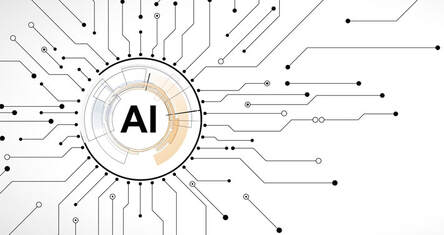In Pursuit of Profit
Read our expert article below or sign up to get articles sent to your inbox.
 As accounting consultants, we have seen AI usage increase dramatically over the last five years across daily accounting activities throughout organizations of all sizes. So, where is AI most widely used in bookkeeping and accounting these days? When it comes to AI in accounting, A/R and A/P augmentation has proven to be the low hanging fruit. As accounting technology has grown more sophisticated machines have been tasked with doing these types of repetitive functions that have traditionally bogged organizations down with manual work. With A/R and A/P already being powered by AI, what can we expect next?  The speed at which AI is being introduced into our everyday lives is head spinning! Recent discussions of using AI in the accounting field are all over the map. Some say it’s a huge time saver, while others say it’s potentially disastrous (some will even spout both opinions in the same sentence). Since the industry seems so conflicted about this hot topic, let’s explore the potential advantages and possible pitfalls of using AI in accounting. 11/3/2023 The Intersection of Accounting and AI – The Complete Guide to What Business Leaders Need to Know
It is situations like these that proponents of AI in accounting are hoping to reduce (or eliminate entirely) by using AI applications like automation and machine learning. As our team explains when discussing the future of accounting, Technology can be used to augment accountants’ responsibilities, increasing efficiency and improving job satisfaction. AI is currently the most transformative force in the accounting industry, and with good reason! AI allows accountants to do better work faster, improving accuracy, scalability, data availability, and collaboration to drastically improve business outcomes. But increased accuracy and efficiency are not the only benefits that AI has to offer. AI use in accounting can also improve job satisfaction, providing more fulfillment in the work that accountants do. Reducing the amount of busywork accountants are responsible for frees them up for more strategic activities, allowing them to act in more of an advisor role instead of just a number crunching capacity. This shift can greatly help to retain accountants amid the current labor shortage.
7/31/2023 Is a Zero-Day Close Possible?
Accountants that have been in the industry for decades may find this idea unfathomable because they are used to the regular cadence of time-consuming, stressful closing procedures that never seem to go smoothly. And yet, as automation becomes ever more prevalent in accounting and finance, the traditional bookkeeping role is becoming largely replaceable by software, taking with it some of the tediousness and historical pain points that have traditionally been a hallmark of the industry. Will a manual month-end or year-end financial close soon become a relic of the past?
These figures should be a real wake up call for accounting managers and their employers, especially at a time when the pipeline of students pursuing accounting degrees is drying up as well.
If accounting does not change as a profession soon, we may continue to see the numbers of accountants dwindle. The accounting pool keeps getting smaller and smaller. So, what’s next? Could it be extinction? |
SUBSCRIBE:DOWNLOAD:DOWNLOAD:Categories:
All
Archives:
July 2024
|
Services |
Company |
|
4/15/2024